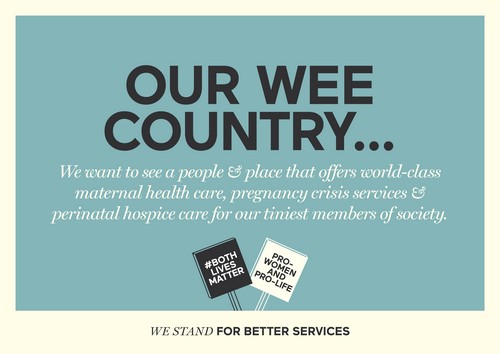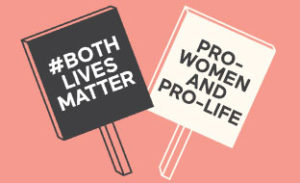As part of a series of reflections for the 50th anniversary of the 1967 Abortion Act, Cora sherlock, the Pro-LifeCampaign Ireland, considers how, with the benefit of fifty years of lived experience and government data, we can now understand the impact of that law change. Has the ’67 Act benefited or harmed women?
We hope that these contributions from people across the British Isles and Ireland will provide some much needed context and perspective to this sensitive issue.
In many ways it’s difficult to come to terms with a date like the 50th anniversary of the 1967 Abortion Act. The impact of this piece of legislation has been far-reaching, its effects spreading much further than its original framers could ever have foreseen. 8 million lives lost. The creation of a society where 1 in 5 pregnancies ends in abortion, where 98 per cent of abortions are carried out on social grounds, where 37 per cent of abortions are carried out on women who have had at least one prior abortion.
Despite the awesome import of those facts, it’s all too easy to let them stay as just that – facts and figures, statistics that stay far removed from the reality of everyday life. As with so many areas of human life, it takes a story to make us understand what they really mean.
We may well read in a Parliamentary Inquiry that 90 per cent of babies diagnosed with Down Syndrome in the womb are aborted in England and Wales but it is the real-life stories of the members of the Don’t Screen Us Out campaign who have brought this statistic to life with such devastating clarity and courage. Their public witness demands that on this anniversary we ask ourselves: is this really the kind of society that the framers of the 1967 Act sought? One where happy, confident and deeply loved people would be forced to make the case for their very existence?

Surely not, and yet this is perhaps one of the most disturbing aspects of this anniversary – how close we consistently come to making the same mistakes all over again. This is certainly the case in Ireland, where the debate is currently underway about whether we should repeal the 8th Amendment of the Constitution and with it remove the last remaining constitutional protection for the unborn baby.
Many of the same arguments are being used as were once heard in 1960s Britain – abortions will happen anyway whether legal or not, the procedure can be introduced on “restrictive grounds”, we should simply trust women.
As a woman in Ireland, it is perhaps the last argument that I find so upsetting. The idea that as a pro-life supporter, I don’t “trust women”. If anything, the last 50 years of abortion in the UK should put paid to any idea that abortion has a positive impact on women. Every other week there is a scandal about how an abortion clinic has failed a woman in need. This week it’s the turn of Marie Stopes, who have been found to be offering bonuses to staff members if they can persuade women to go ahead with abortions, even going so far as to phone up women who may be reconsidering and thinking instead about keeping their child.
In 1967, this would be considered abuse of the highest order. In 2017, it barely registers in the footnotes of the mainstream media. It’s almost as if social commentators have become so used to defending access to abortion that they recoil automatically from anything that might require them to take a closer look. Pull at the thread and the entire tapestry of the last 50 years might unravel – and it wouldn’t be pretty.
There have been deaths – the tragedy of a woman who bled to death in the back of a taxi after an abortion, again in a Marie Stopes clinic. The scathing report by the Care Quality Commission into the British Pregnancy Advisory Service last year, highlighting serious health and safety concerns including the transmission of 11 women to A&E departments following abortions. The babies born alive and left to die in so-called botched abortions, a travesty that is now being made worse in Ireland as prochoice campaigners insist that this well-documented phenomena has never happened. The incineration of the remains of aborted babies as their bodies are used to heat NHS hospitals. And throughout, the underlying trauma and grief of women who are continually expected to swallow the pro-choice line that there is ever anything positive about ending the life of your baby.
Now, more than ever, this anniversary must be one of unity. It must be a time when pro-life campaigners come together to support those in the UK who are working so hard to restore protection to unborn babies and right the terrible wrong that was done in 1967. It is a time too for those of us lucky enough to still have pro-life laws to make a commitment towards working to keeping them in place and to refuse to give in to the myths and fallacies spread by pro-choice campaigners.
Encouraged by those who have joined the pro-life movement in the past 50 years, and standing in solidarity with those who have been harmed, it is a day to remember the 8 million lost, and to look forward in hope.

